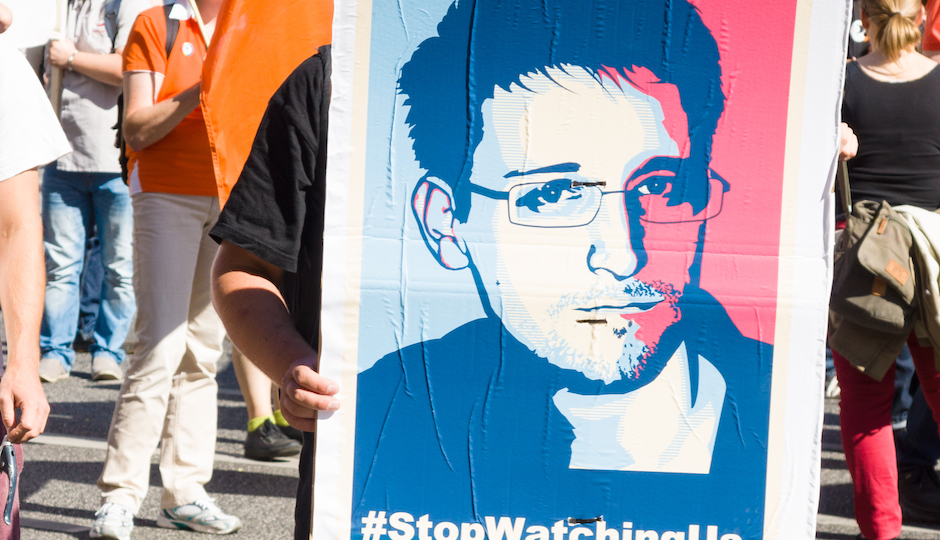These Heroic Philadelphians Broke the Law and Saved Freedom. You Should, Too.
Had a radical thought this morning while reading about the “Edward Snowdens of Philadelphia,” a group of anti-war activists in the 1960s who revealed the government’s illegal spying on Americans … by breaking into an FBI office and leaking the documents they stole to the Washington Post.
The thought: It’s time Americans should assume that any and all claims of secrecy by the government are improper and illegal, and act accordingly. We should decide that, as a rule, the government doesn’t get to have secrets.
We should all become Edward Snowdens, in other words.
Why? Because the evidence is clear: The government generally makes excessive demands on American citizens that its own secrets be kept, even while giving zero deference in the opposite direction. The revelation of government secrets can sometimes produce harm to the government, but most often those revelations serve the public. At this point, it seems Americans would be better served by assuming government secrecy is illegitimate.
Let’s review some of the highlights postwar secrecy scandals, shall we?
• First, the “Snowdens of Philadelphia” incident, as reported in today’s New York Times. A group of Pennsylvanians broke into the FBI offices in Media, Pa., and found evidence the government had been illegally spying on anti-war activists — and turned up the first evidence of COINTELPRO. The Times describes:
Since 1956, the F.B.I. had carried out an expansive campaign to spy on civil rights leaders, political organizers and suspected Communists, and had tried to sow distrust among protest groups. Among the grim litany of revelations was a blackmail letter F.B.I. agents had sent anonymously to the Rev. Dr. Martin Luther King Jr., threatening to expose his extramarital affairs if he did not commit suicide.’
“It wasn’t just spying on Americans,” said Loch K. Johnson, a professor of public and international affairs at the University of Georgia who was an aide to Senator Frank Church, Democrat of Idaho. “The intent of Cointelpro was to destroy lives and ruin reputations.”
The government kept secrets. The government invaded the privacy of its citizens. And it took illegal action by private citizens to expose all of that to the world. Whose side would you rather be on?
• Around the same time, Daniel Ellsberg uncovered the secret “Pentagon Papers” — a vast trove of documents detailing the history of the then-ongoing Vietnam War, papers that “revealed that the government had knowledge, early on, that the war could most likely not be won, and that continuing the war would lead to many times more casualties than was ever admitted publicly.” He photocopied the papers, gave them to the NYT and Washington Post, letting Americans know how they’d been deceived. For his actions, President Nixon’s underlings ransacked the office of Ellsberg’s psychiatrist in order to turn up incriminating information about him. They failed.
The government kept secrets. The government invaded the privacy of its citizens. It took illegal action by private citizens to expose all of that to the world. Whose side would you rather be on?
• More recently, of course, we’ve had the warrantless wiretapping scandal, the Wikileaks revelations about American activities in Iraq and in the diplomatic arena, and, of course, Snowden’s revelations about the extent of NSA data gathering.
In many of those cases, the pattern is the same: The government invaded the privacy of its citizens while demanding its own secrecy. Journalists have been inclined to grant that secrecy — consider it took the New York Times a year to publish what it knew about warrantless wiretapping, largely because the Bush Administration pleaded about the awful harm such revelations would do. And in each case, the actual damage done to the government was… negligible, amounting mostly to hurt feelings and a few lightly damaged international relationships, but little else. Americans, though, gained valuable access to and insight about the activities of their government.
The pattern is clear enough, in fact, to suggest two things:
• The more secrecy the government has, the less privacy you have.
• Little harm will be done if Americans assume, as a general rule, that government secrets are harmful to the public at large, and try to pry those secrets lose for public consumption at every opportunity.
This is, I concede, nearly an anarchist way of thinking. Is it proper?
Consider this: Nearly 5 million Americans have security clearances that allow them access to classified information; I would contend that information that is able to be known by as many as 5 million people isn’t “secret” in any genuine sense of the word. The government, meanwhile, classifies more than 90 million documents a year. Government — of, by, and for the people, supposedly — is happening in the dark, underground, away from the prying eyes of the public it is supposed to serve. This can’t be how the Founders would’ve wanted things; it’s certainly not what we should want for ourselves as free people.
In America, the government is ours. We are its owners. It serves our purposes. When it fails to do so, we have a right to bring it back under control, to put it back on course. Philadelphia’s activists did so 40 years ago and they were right to do so; Snowden has done it today. Maybe it’s time we consider those folks the rule, and not the exception.
Follow @JoelMMathis on Twitter.



